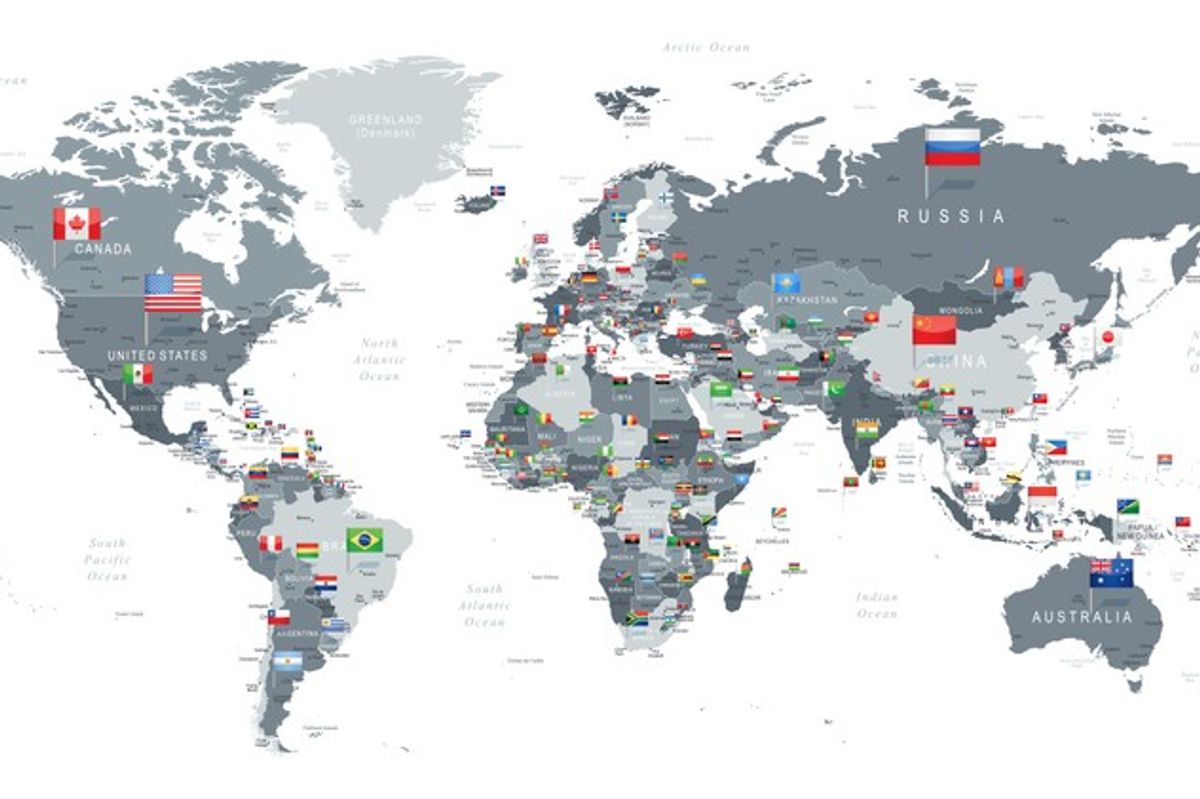British Prime Minister Theresa May trigger of Article 50 of the European Union’s Lisbon Treaty, formally launches two years of negotiations that will determine the future of EU-UK relations after the United Kingdom has left the bloc. However, as talks approach, May faces a divided country at home. Last Tuesday, Scotland’s devolved parliament voted 69 to 59 to give Scottish First Minister Nicola Sturgeon the authority to ask London for a new independence referendum, on grounds that Brexit has delegitimized the results of Scotland’s last independence referendum in 2014. Sturgeon wants to hold a new referendum between 2018 and 2019, smack in the middle of planned Brexit negotiations. This is something that May has said she cannot allow. The Cipher Brief’s Fritz Lodge spoke with Jacob Funk Kirkegaard, Senior Fellow at the Peterson Institute, on whether this second referendum is likely to take place, and what could happen to the UK if it passes.
The Cipher Brief: Now that Scottish First Minister Nicola Sturgeon has called for a new Scottish independence referendum to be held between 2018 and 2019, what are the main legal obstacles to this plan?
Jacob Funk Kierkegaard: You can’t have an independence referendum without the consent of the United Kingdom government itself, the central government in London. That is the main legal obstacle and, of course, the main political obstacle. Unless UK Prime Minister Theresa May agrees to hold a new referendum in the same way that former prime minister, David Cameron, agreed to hold one in 2014, it cannot legally happen.
There is the risk that they will end up in the same sort of situation, which has happened in Catalonia in Spain, where the central government refuses to hold an independence referendum but the local government tries to hold its own referendum. That is a situation which the UK central government would like to avoid because it would clearly nurture the secessionist cause in Scotland. Theresa May recognizes this so, sooner or later, they’re going to have a referendum, but May just doesn’t want it to happen while she is in the middle of Brexit negotiations.
TCB: So Sturgeon’s proposed date for a referendum is unrealistic?
JFK: Yeah, that’s not going to happen. I was a little surprised when I saw Sturgeon propose that, because if you look at the Scottish polls now, they’re still showing a significant majority for remaining in the UK, and I would think that you would need a significant worsening of the economic situation in the UK for that to change. Quite frankly, I’m not sure that deterioration could happen until Brexit is completed.
That aside, Theresa May has been very clear that she will not allow the referendum to go forward so soon. It’s not going to happen.
TCB: Is it possible that Sturgeon is gambling that Theresa May will shoot down the Scottish leader’s demands in an arrogant manner and that this response will provoke deeper political support in Scotland for the referendum and independence?
JFK: I think that some calculus like that has probably played a role. There’s no doubt that the more standoffish or resistant the central government is to the demands of a democratically elected government in Scotland, the more it will nurture the secessionist cause. No doubt about it.
TCB: Are Sturgeon’s – and northern Irish leaders’ – complaints accurate that they have been given very little say in London’s negotiating position going into Brexit?
JFK: Oh yes. They have been given zero input, and that’s very clear. This is also something that is going to nurture talk of secession.
TCB: What is May’s thought process on that issue? Why not involve the devolved governments of the UK, notably Scotland, more closely in the Brexit process?
JFK: Because the position of Scottish leaders is very clear. They don’t want to leave the EU. Going into negotiations with the rest of the EU, with a part of your “team” essentially siding with the EU, would weaken your negotiating position. For better or worse, May’s best negotiating card, even though it is somewhat suicidal, is her threat to walk away from a deal with the EU — To break without paying any past dues or making any new agreements. But you can’t play this card if the Scots are party to the negotiations because they would clearly block a move to leave without a deal.
This is all about May presenting a unified UK position to the EU, which in a narrow sense makes sense for the negotiations.
TCB: May is taking a political risk in order to keep her biggest card on the table – the threat of walking?
JFK: Yes, and the problem for her is that this is a short-term card. It’s relevant for these Brexit negotiations, but keeping the option of quitting negotiations alive risks fueling secessionist sentiments in Scotland because the Scots feel legitimately ignored.
TCB: You say 2018 and 2019 are out of the picture, but it is probable that a Scottish referendum will be held after. How and when do you think that would happen?
JFK: The next Scottish parliamentary elections are set for 2021. These elections will be a trial run for the independence referendum, meaning that the Scottish National Party (SNP) is going to campaign on the issue of holding a new referendum. Assuming that the SNP wins again, at that point it will have a very clear democratic mandate for independence. Brexit will have happened and also, in my opinion, the economic situation in the UK will be materially worse. At that point, the referendum will happen and the government in London will have to agree to it. Then we’ll just have to wait and see how the vote turns out.
TCB: Let’s say the Scots do separate. Could an independent Scotland accede to the EU? What are the major obstacles to Scottish accession?
JFK: By that time Scotland would already be out of the EU so it wouldn’t be automatically grandfathered in. Scotland will have to apply to the group on its own merits. However, the fact that it will have so recently left the EU and therefore have a legal framework which still looks very much like the EU means that entry negotiations could be over very quickly. By any standard, Scotland fits the mold, there’s not much to negotiate. Almost all Scottish regulation will still comply with EU legislation, so therefore it could become a member of the EU within two or three years, which for this kind of process is very rapid.
TCB: What about opposition from EU countries such as Spain, with their own secessionist movements?
JFK: In the case of Spain, the main concern is that it doesn’t want Scotland to be able to secede before Brexit. It wants to make sure that Scotland is not grandfathered into the EU in a way that would allow Scotland to stay in the EU as the UK leaves. But if the UK leaves the EU and Scotland applies to get back in a year or so after – assuming they pass the independence referendum – that is not something that the Spaniards would have anything against, because Scotland would be applying as an independent country to get into the EU. That doesn’t have any symbolic spillover effect for Catalonia. The precedent Spain doesn’t want is for a part of the UK to break off and automatically become part of the EU, because that is what Catalonia wants.
TCB: What challenges does Scottish independence present for the rest of the UK? What would the UK look like should Scotland leave?
JFK: That would be the end of the UK. Then it becomes the three kingdoms: England, Northern Ireland, and Wales. I think that if Scotland becomes independent, a lot of people will be talking about the reunification of Ireland. Even Wales might consider secession, although I don’t think that would be economically viable. All this would be incredibly traumatic for the UK as such.
Economically, I don’t think Scotland’s leaving would make a big difference for the rest of the UK. Scotland is a drag on the economy; there are large fiscal transfers from England to Scotland, so the economic pain will be felt mostly in Scotland. But in the sense of national identities, and in political terms, this would be incredibly traumatic.
TCB: On the military issue, Scots play an outsize role in the UK military. How would Scottish independence effect UK defense?
JFK: Oh absolutely. In terms of personnel the Scots play a huge role, but mostly in terms of naval bases. The UK nuclear submarines are all in Scotland, and they’re not so easy to move. Does Scotland want to be a nuclear-armed country? Probably not. Would England allow that? Of course not. So there are many thorny issues there.
TCB: Last thoughts?
JFK: One thing. If Scotland leaves, there is a significant currency issue. It’s quite clear that if they leave, the UK would not allow them to continue to use the pound. So what do they do? Do they take the Euro? Do they try their own currency? Do they dollarize? Do they stay on the pound even without support from the Bank of England? It’s tricky because an independent Scotland would have, for a country that size, a reasonably large financial sector. This will be a very important issue.












